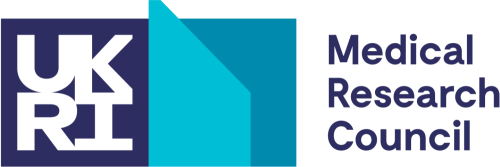1st Annual Conference
Our 1st Annual Conference took place on 26th March 2024 at The Catalyst, Newcastle upon Tyne, bringing together around 120 individuals with an interest in rare disease research, including researchers, healthcare professionals, patients, and industry representatives, either in person or online.
The theme of the conference was “Exploring the Rare Disease Research Landscape” with the aims of
- introducing the UK Rare Disease Research Platform funded by MRC and NIHR
- exploring recent developments in the rare disease research landscape, in the UK and beyond and
- understanding strengths and needs around key topics of relevance to rare disease research
Presentations given at the conference were as follows:
- Perspectives from the NIHR: Professor Lucy Chappell, Chief Scientific Advisor, DHSC & Chief Executive Officer, NIHR
- The UK Rare Diseases Framework & Results of the Rare Disease Research Landscape Project: Dr Kath Bainbridge, Head of Rare Diseases and Emerging Therapies, DHSC
- LifeArc’s Rare Disease Translational Challenge: Dr Catriona Crombie, Head of Rare Disease, LifeArc
- The Rare Disease Research UK Platform
- Perspectives from the MRC: Professor Brian Walker, Chair MRC Population and System Medicine Board & Deputy Vice-Chancellor, Newcastle University
- CILIAREN Node: Professor John Sayer, Clinical Professor of Renal Medicine, Newcastle University & Lead – CILIAREN Node
- CAPTIVATE Node: Dr Victoria Homer, Senior Biostatistician, University of Birmingham & Co-Director – CAPTIVATE Node and Dr Alex Wimbush, Biostatistician, University of Birmingham & CAPTIVATE Node
- Lipidomics and Metabolomics for Rare Disease Diagnosis Node: Professor William Griffiths Professor in Mass Spectrometry, Swansea University & Lead – Lipidomics and Metabolomics Node
The day also featured engaging panel discussions on
- Reflections on the new landscape and its opportunities: Victoria Hedley (Chair), Professor Joe Bateman, Dr Catriona Crombie and Dr Victoria Lund. The discussion highlighted the need for collaboration – in the new UK landscape broadly, but especially between the new LifeArc Translational Research Centres and RDR UK – in addressing challenges in rare disease research. The panel emphasized the opportunities to foster improvements in terms of building partnerships, optimising access to and usefulness of data infrastructures, and embedding robust patient involvement, with a focus on training, investment, and optimizing platforms for scientists and patient groups.
- PPIE good practice – perspectives from contributors and researchers: Kerry Leeson-Beevers (Chair), Clare Powell, Lynn Laidlaw, Dr Kaustubh Adhikari and Natasha Lindsay. This discussion explored the significance and implementation of PPIE in research, featuring personal journeys and initiatives from individuals involved in various projects. The panel emphasized the importance of qualitative-driven research, diversity, trust-building, and collaboration for meaningful engagement with patient communities.
- How can we best collaborate with Industry for better, faster rare disease trials: Professor Volker Straub (Chair), Nick Sireau, Sheela Upadhyaya and Professor Lucinda Billingham. The session focused on highlighting challenges and opportunities around engaging the pharmaceutical industry engagement and explored ways to make the UK most attractive for clinical trials. Reasons for clinical trial failures were discussed, along with strategies to avoid trials failing needlessly. The panel also emphasised good practices and opportunities around revising the pharmaceutical registration processes, patient involvement in drug development, infrastructure development, and boosting competitiveness in rare disease research.
Moving forward, RDR UK plans to hold topic-specific workshops and a conference each year, each hosted in various locations across the UK. Each conference will be an opportunity to showcase the impact of RDR UK and the progress made in the nodes’ research initiatives. These gatherings will bring together people from all parts of rare disease community to work together, share ideas, create awareness and find new ways to accelerate rare disease research and treatment.
Meet Our Speakers and Panellists!

Nick is the CEO and Chair of Trustees at the AKU Society, a patient group that helps people with AKU, a rare genetic disease affecting both his children. The AKU Society and Nick are the winners of the 2021 Members Award by EURORDIS (the European Organisation of Rare Diseases) because of their work on successfully developing a new treatment for AKU. Nick is co-founder and Chair of Beacon, an organisation that helps all rare disease patient groups. He is the editor of ‘Rare Diseases: Challenges and Opportunities for Social Entrepreneurs’ (Greenleaf 2013) and of the ‘Patient Group Handbook: A Practical Guide for Research and Drug Development’ (Beacon 2016). Nick is co-founder and Chair of Orchard OCD, a medical charity that funds research into obsessive-compulsive disorder (OCD), a common yet debilitating mental health condition. He is also co-founder of Sirgartan Therapeutics, a biotech that focuses on new treatments for OCD, and of Sireau Labs, a biotech that is developing mRNA therapy for AKU and other rare genetic diseases. Nick has a BA in history and economics from Oxford University, an MSc in management studies from the Lyon Graduate School of Business, an MA in Journalism Studies from Westminster University and a PhD in social psychology from City University. He is a fellow of the Ashoka Fellowship of Social Entrepreneurs.
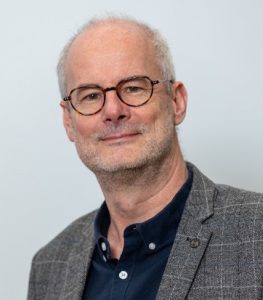
Professor Volker Straub is the Director of the John Walton Muscular Dystrophy Research Centre and Deputy Dean for Newcastle University’s Translational and Clinical Research Institute. He is a Consultant in Neuromuscular Genetics and Paediatrics, and an NIHR Senior Investigator. Volker has a long-standing interest in the pathogenesis of genetic muscle diseases, with research involving disease models, the application of imaging technologies, next generation sequencing, and machine learning. He is the Chief/Principal Investigator for several natural history studies and interventional clinical trials in rare neuromuscular disorders. He is the current president of the World Muscle Society and an author on over 450 peer-reviewed publications.
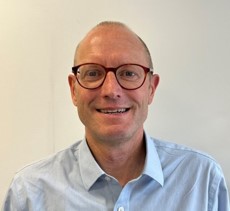
Prof John Sayer is an academic nephrologist and renal consultant. His clinical and research work focuses on studying the genetics and molecular mechanisms and treatment of inherited renal diseases, particularly cystic kidney diseases and tubular transport disorders. He leads the CILIAREN Rare Disease Node which aims to connect stakeholders to improve the identification, diagnosis and management of patients with renal ciliopathies and drive innovation for novel therapies for all renal ciliopathies, common to ultra-rare.

Professor Lucy Chappell is Chief Scientific Adviser to the Department of Health and Social Care and CEO of the NIHR. She has overall responsibility for DHSC research and development and for supporting the Department’s analysis.
Lucy is also Professor of Obstetrics at King’s College London, Honorary Consultant Obstetrician at Guy’s and St Thomas’ NHS Foundation Trust, and President of the Blair Bell Research Society. She is an NIHR Senior Investigator and a former NIHR Research Professor, and was previously a member of the NIHR HTA Clinical Evaluation and Trials Board.

Prof Brian Walker is the Deputy Vice Chancellor at Newcastle University and was previously head of the BHF Centre for Cardiovascular Science in Edinburgh. He is an Endocrinologist whose research targeted steroid hormone signaling in cardiovascular disease and developed a safer approach to steroid replacement in patients with rare adrenal disease. He is the Chair of the MRC’s Population & Systems Medicine Board and was instrumental in developing the funding call for RDRUK. He also chairs the UK Rare Diseases Research Landscape Steering Group for the Department of Health & Social Care and is a Trustee of the British Heart Foundation.

Victoria is a Rare Disease Policy Manager at Newcastle University and a co-lead and founder of the Newcastle Centre for Rare Disease. She has played an active role in the generation of rare disease (RD) policies and policy-related outputs for over a decade, especially in the European ecosystem: she worked closely with the European Commission under two European Joint Actions, to support the conception, implementation and evolution of 24 European Reference Networks; she led the knowledge-based activities of the Rare 2030 foresight project; and she contributed to the development of disease-agnostic EU-level recommendations on topics such as National Plans and Strategies, the Incorporation of RD into Social Services and Policies, and Patient Registration and data collection. She established and currently coordinates the RD-IMAG (UK-International Mirror & Action Group for RD Research) and is a co-lead for the new Rare Disease Research UK Hub. Victoria received the EURORDIS European Rare Disease Leadership Award in 2021.
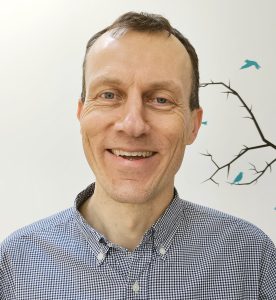
Joseph Bateman is Professor of Molecular Neuroscience in the department of Basic and Clinical Neuroscience at King’s College London. Joe did his BSc and PhD at University College London. He then moved to the University of Texas Southwestern Medical Center as a postdoc to work on mitochondrial genetics. After three years in the USA, he was awarded a Cancer Research UK Postdoctoral fellowship to work at the CRUK London Research Institute studying mTOR signalling in neurodevelopment. Joe started his own lab as a Lecturer at King’s in 2005 and was promoted to Professor in 2021. Joe’s lab has pioneered research into the role of mitochondrial stress signalling and mTOR signalling in the nervous system. He has served on various national grant committees and led the Alzheimer’s Research UK London Network Centre. Joe currently leads the mTOR Pathway Diseases node, part of the UK Rare Disease Research Platform on which he also chairs the Platform Executive Board.
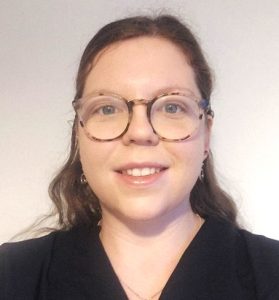
Dr Victoria Lund is the MRC Programme Manager for Rare Diseases which includes managing the Rare Disease Research UK Platform for MRC. She sits within the Population and Systems Medicine Board where she also covers Respiratory Diseases and Inflammation. Victoria has previous experience of research funding in the UK from working at EPSRC as a Portfolio Manager for Mathematical Sciences for 3 years. She has also worked in Clinical Trials for Type 2 Diabetes and as a research microbiologist.

Prof William (Bill) received his BSc and PhD in Chemistry from University College, Cardiff. He was trained in biomedical mass spectrometry working with Professor Jan Sjövall at Karolinska Institutet in Stockholm. Bill has held academic positions in Kingston Jamaica, Stockholm Sweden and London. In 2007 Bill moved to Swansea University to take the Chair of Mass Spectrometry.
Bill’s research interests are in cholesterol biosynthesis and metabolism, particularly pathways of bile acid biosynthesis. Bill works closely with long term collaborator Professor Yuqin Wang, and the focus of their group’s work is on the involvement of oxysterols in biology, particularly inborn errors of metabolism, neurodegenerative disease and the immune system. Bill currently leads the Lipidomics and Metabolomics for Rare Disease Diagnosis node, part of the UK Rare Disease Research Platform.
When living in the Caribbean, Bill played international rugby for Jamaica.
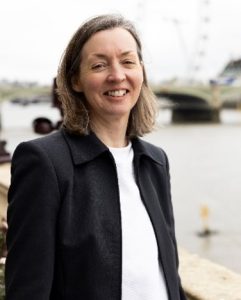
As Director of Research at Genetic Alliance UK, my job is to ensure that we are active in relevant research that shines a light on the experiences of people affected by genetic and rare conditions. I work closely with our policy team to ensure that we identify policy implications that arise from our research. We carry out in-house studies and collaborate with university researchers and clinicians. My academic background is in molecular biology and I have had several managerial roles in biomedical and psychosocial research

I live with a rare auto immune rheumatic disease and multiple long term conditions. A 4 year diagnostic odyssey prompted my interest in Patient and public involvement and now I am involved with multiple researchers, academic institutions and organisations. I am a Co Investigator on multiple grants and am increasingly co producing research and working as a patient researcher.
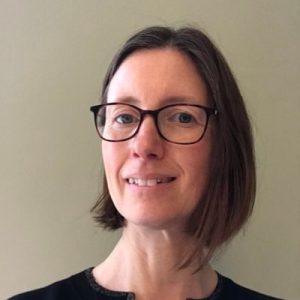
Dr Kath Bainbridge leads the Department of Health and Social Care’s Rare Diseases and Emerging Therapies policy team. The team has responsibility for: policy on rare diseases under the UK Rare Diseases Framework; emerging technologies associated with human genetics; stem cell transplants; genetic testing and insurance; and human fertilisation and embryology. The team works closely with the department’s Science Research and Evidence Directorate and the National Institute for Health and Care Research and with a broad range of public sector delivery partners and wider stakeholders, placing robust evidence and the patient voice at the heart of their work.
Kath has a PhD in genetics from the University of York and worked in Switzerland as a research scientist before joining the civil service. Over the past 15 years she has worked in research funding, policy, strategy and regulatory roles across several government departments and in scrutiny roles for Parliament and the Independent Commission for Aid Impact.
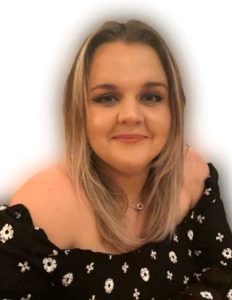
Victoria (Tori) Homer is a senior biostatistician at the Cancer Research UK Clinical Trials Unit (CRCTU) at the University of Birmingham. She is involved in the design, supervision, analysis and reporting of clinical trials in a variety of oncology and non-oncology clinical areas in both adult and paediatric populations. She has experience in all phases of trial from first-in-human and dose finding trials to randomised phase III trials of investigational medicinal products, devices, and advanced and cellular therapies. Tori’s work focuses on early phase dose finding and proof of activity clinical trials, Bayesian methodology, and trials in (ultra-)rare diseases. She has a keen interest in improving efficiency in trials, mainly through adaptive designs, novel dose finding methods, and hierarchical and repeated measures analysis.
Moreover, Tori is the deputy director of the MRC-NIHR UK Rare Disease Research Platform CAPTIVATE node for trials methodology in rare diseases. This challenge node is aiming to develop innovative clinical trial designs that enable the efficient evaluation of treatments for rare diseases with limited numbers of participants such that the designs and data are acceptable to patients and participants, regulators, and policy makers.

Clare Powell is a Mum and carer to two children. B her youngest has Autism Spectrum Disorder and A is now a teenager with an undiagnosed progressive multisystem disorder. He has a whole list of individual diagnoses but no over all diagnosis/cause has been identified. Clare has written a few articles for GA and SWAN UK about their journey. She has been involved with the Genetic Alliance R14 Study PPIE for about three years and prior to this was on a PPIE group at Great Ormond Street Hospital where they carried out research into developing an assessment tool for children attending hospital with learning disabilities. Previously ( pre being a full time carer), she was a qualified Nurse, mainly specialising in cancer nursing. She has been a university lecturer to nursing students, a community Macmillan Nurse, a Research Sister running Haematology trials ( while doing this she joined the South East MREC as a Nurse Representative) as well as a ward nurse and junior Sister.
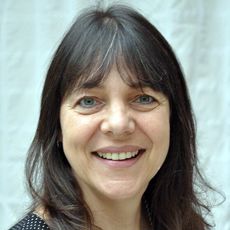
Lucinda Billingham is Professor of Biostatistics within the Institute of Cancer and Genomic Sciences at the University of Birmingham. She has worked for over 25 years as a Biostatistician at their Cancer Research UK Clinical Trials Unit and is now Director of Biostatistics for the unit working with a large team of Biostatisticians on an extensive portfolio of early and late phase trials.
Lucinda has a special interest in lung cancer research and is the Chief Biostatistician for the National Lung Matrix Trial. As well as her PhD research on statistical methods for the simultaneous analysis of quality of life and survival data, other key areas of expertise include application of Bayesian methods in trials, design and analysis of trials in rare cancers, early phase trial design and statistical methodology for biomarker discovery, validation and evaluation for stratified medicine. Lucinda currently leads the CAPTIVATE node, part of the UK Rare Disease Research Platform.

Sheela Upadhyaya, a Life Sciences Consultant specialising in Rare Diseases, brings extensive expertise and leadership in the rare disease space. Currently serving as co-chair of the Health Technology Assessment Rare Disease Interest Group and chair of Together for Rare Diseases, she champions collaboration between European Reference Networks, Industry, and stakeholders to enhance research in rare diseases. With a background as the rare disease strategic advisor to NICE and Associate Director of the Highly Specialised Technology program, Sheela has a proven track record in evaluating medicines and technologies for rare and ultra-rare conditions. She excels in collaboration with industry, clinicians, patients, and the NHS. Sheela’s contributions extend to co-authoring papers on HTA methods for orphan medicines and presenting at conferences on the subject. Prior to her current roles, she commissioned rare and ultra-orphan disease services in the NHS, emphasising partnership working for improved outcomes across the healthcare sector.

Dr Kaustubh Adhikari is a lecturer of statistics at the Open University. He conducts research in statistical genetics to explore the genetic basis of our characteristics and appearance. He also has a keen interest in public engagement on statistics and statistical genetics, especially about their misuse and misunderstandings in the medical arena. He is a founder of the ‘Genetics Research Awareness via Community Engagement’ (GRACE) project, which conducts engagement and research activities among various underrepresented groups to understand their interests and concerns around genomics and health, working towards a more equitable representation.

Kerry is CEO of Alström Syndrome UK.
Alström Syndrome UK (ASUK) was established in 1998 and is a registered charity providing information and support to individuals and families affected by Alström Syndrome (AS) and to the service providers working with them. ASUK works in partnership with Birmingham Women’s and Children’s Hospital and the Queen Elizabeth Hospital, Birmingham to deliver a highly specialised service, funded by NHS England. As a patient led organisation, the needs and wishes of people affected by AS remain at the heart of everything we do. We aim to; provide personalised support, raise awareness, conduct pioneering research, and enable better treatments and monitoring through the AS multi-disciplinary clinics.
ASUK co-founded Breaking Down Barriers in partnership with The Sylvia Adams Charitable Trust.
Breaking Down Barriers is a network of over 70 organisations providing support to people affected by rare and genetic conditions. We work together to learn, develop, and share good practice. Promoting equity, diversity and inclusion is at the centre of what we do. Our Experts by Experience Advisory Group help us to understand the lived experiences of people from diverse and marginalised communities who are affected by rare and genetic conditions. We create safe spaces for learning and collaboration, deliver training and run a community outreach project. We unite and strive for equitable access to services and support for all.
Kerry has lived experience as her son is diagnosed with AS which is an ultra-rare and complex condition. She is a patient representative on the England Rare Diseases Framework Delivery Group and is co-applicant on various NIHR funded research studies. Kerry has been involved in various UK, EU and global projects focussing on rare diseases, genomics and drug development and is experienced in patient and public involvement and engagement.
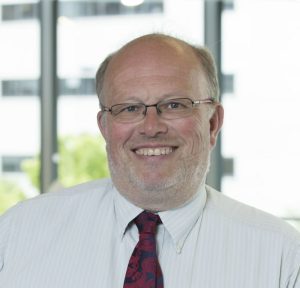
Professor Jones is Professor of Liver Immunology at Newcastle University and PI for the UK-PBC Research Consortium. He leads the internationally renowned autoimmune liver disease clinical service in Newcastle, hosted by the Newcastle upon Tyne Hospitals Foundation Trust (NUTH). He has worked in the area of the autoimmune liver disease Primary Biliary Cholangitis (PBC) for over 25 years, starting as an MRC Clinical Research and Clinician Scientist Fellow.
The UK-PBC MRC Stratified Medicine programme, which he led, has revolutionised thinking in the disease, defining the unmet need, developing the clinical tools needed to quantify risk and identifying the patient groups who need enhanced therapy in PBC. He has led the evaluation, approval and implementation programmes for the first stratified therapy in PBC (and indeed any rare liver disease), Obeticholic Acid, which is now available across the NHS. He was also the Coordinator for the RARE-LIVER European Reference Network (ERN) which was established to support the development of clinical delivery programmes for rare liver disease (PBC is a rare disease) across Europe.
He is an NIHR Senior Investigator and in June 2018 was awarded an OBE for his services to Liver Medicine and Clinical Academic Training.
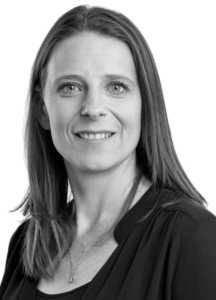
Dr Catriona Crombie is an expert in translational medicine, specifically moving research out of universities and into the commercial environment. She has worked for over 15 years in research funding in the state and charity sectors.
Catriona is Head of the LifeArc Rare Disease Translational Challenge. She has responsibility for LifeArc’s rare disease research portfolio, which includes grant funding for academics to progress their research towards patient impact as well as the awards made in partnership with others e.g. Innovation Hubs for Gene Therapy funded in partnership with the MRC.

Dr Alex Wimbush is a Research Fellow at the Cancer Research Clinical Trials Unit (CRCTU) at the University of Birmingham. Prior to joining the CRCTU, he gained his PhD from the University of Liverpool for his work identifying robust methods for characterising and propagating uncertainty in the analysis of medical diagnostic algorithms, with a focus on non-additive measures of probability and interval arithmetic/logic. Over the course of his PhD Alex published and presented on topics including confidence distributions/structures, Bayesian inference, density estimation, risk communication, latent variable analysis, and more. He has delivered workshops at the Society For Risk Analysis Annual Meetings, leading groups through the groundwork of robust uncertainty quantification and the psychology of risk and uncertainty. Alex now works on the CAPTIVATE node, focusing on the application of these ideas in low data environments to identify innovative clinical trial designs for rare diseases that address the concerns of patients, clinicians, and regulators alike.
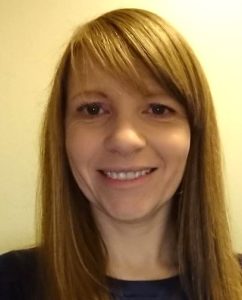
Anna is a Senior Project Manager at Newcastle University, managing the Rare Disease Research UK Hub. She is working with the Hub team to build the RDRUK Platform and provide coordination for its activities with the aim of bringing together expertise from across the UK rare diseases research system to foster new and innovative treatments for rare disease and deliver wider activities in UK rare disease research. She has several years’ experience in project management in various fields, including in medical research, and prior to joining the RDRUK Hub, she managed the NIHR-funded Newcastle In-vitro Diagnostic Co-operative. Before being taken in the direction of project management, Anna studied languages and has a BA in Spanish, Portuguese and Latin American Studies.

Natasha is a final year doctoral student at King’s College London, specialising in developmental psychology with a focus on infants diagnosed with a rare genetic disorder called Tuberous Sclerosis Complex (TSC), and early onset epilepsy. She developed a passion for understanding the complexities of genetic and neurological disorders, particularly those considered rare, during my Psychology degree at the University of Sussex. Now, her PhD aims to investigate the developmental pathways of infants diagnosed with TSC and early onset epilepsy in order to identify early indicators of neurodevelopmental conditions, such as autism. Throughout her studies, she has prioritised incorporating Patient and Public Involvement and Engagement (PPIE), such as recently co-leading a focus group with parents within the epilepsy community to better understand the impact of early onset epilepsy on the family and development. Natasha hopes to continue being actively involved in collaborative PPIE initiatives to support those affected by rare neurogenetic disorders.
